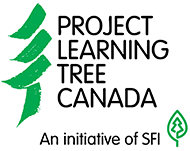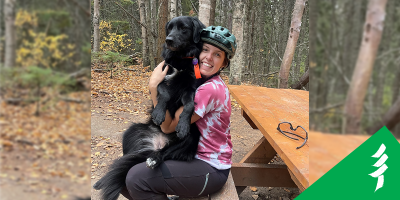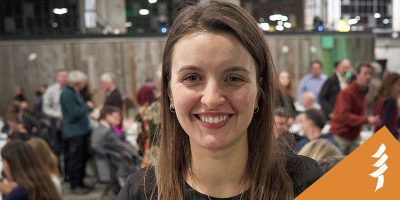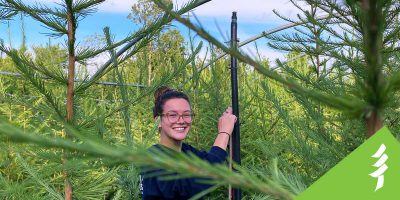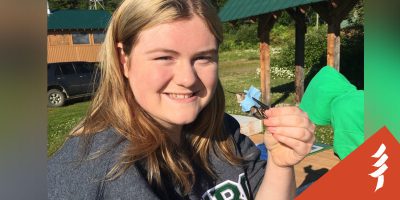GREEN JOB YOUTH SPOTLIGHTS
Cool Neighbourhoods – A PLT Canada Green Jobs Youth SpotlightNovember 28, 2019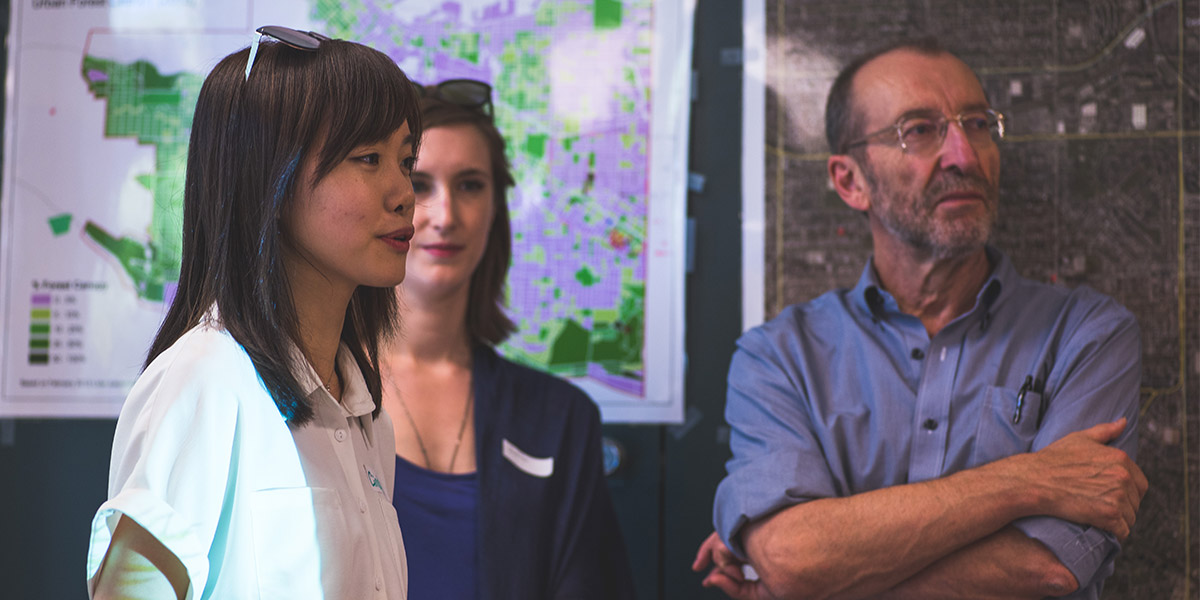 Cindy Zhaohua (left), Urban Forestry Engagement Coordinator at UBC, leading a community group chat about urban forests and climate change. “Our urban populations are growing and at the same time climate change is intensifying, which could turn cities into urban heat islands that demand more and more energy for cooling. The good news is that large, healthy urban forests can be part of the solution,” says Cindy Zhaohua, an Urban Forestry Engagement Coordinator at the University of British Columbia, which is a Green Jobs employer within the Sustainable Forestry Initiative network. Cindy is passionate about engaging communities and youth for collective climate action and sustainable urbanization. She manages the Citizen’s Coolkit project. It’s a collection of tools and hands-on activities that are organized into five steps: chatting, mapping, rating, visioning, and action. The Coolkit encourages people to see how urban forests mitigate climate change, improve and protect human health and property values, and provide outdoor recreation opportunities. Using the Coolkit helps people climate‑proof their neighbourhoods by supporting the urban forests that surround their homes. “We use fun activities like block parties and setting up Facebook groups to help people see their neighbourhoods in a new way. If we can make climate change visible, people can re-imagine our shared future. Checking out the health of local trees is a great first step,” Cindy says. The Coolkit asks people to consider things like how the local tree canopy looks from a squirrel’s perspective. “If a squirrel can make it all the way down your block without touching the ground, it probably means you have a healthy tree canopy that is doing a big part to keep things cool in the summer,” Cindy says. “But if squirrels need more trees it probably means the neighbourhood could benefit from more trees too.” Just like in a natural forest setting where multiple canopy layers and understory help to provide important habitat for a diversity of forest-dwelling species, so does the urban forest for its urban-dwelling wildlife. Other approaches include downloading aerial maps of neighbourhoods and then using markers to let people draw the kinds of forest cover they would like to see. The Coolkit includes specific advice on the kinds of trees that will thrive in Vancouver neighbourhoods along with other climate-friendly actions like replacing traditional grass lawns with more drought-tolerant options and how to select plant varieties that are resistant to pests and disease. In the future, Cindy and urban forest enthusiasts like her will need to expand their work with other urban planning, infrastructure development, and management professionals to develop attractive, sustainable and effective solutions for our cities, suburbs and small towns. This includes working with Urban Foresters, who are professionals that can help to develop sustainable plans for urban forests that take into account everything healthy forests need. In addition to her work with the Coolkit, Cindy is also the coordinator of the Bachelor of Urban Forestry Program at UBC, Canada’s first undergraduate program for designing, planning and managing urban forests and other green spaces. She is working toward earning her PhD in forestry in 2022. Her Green Job with the Coolkit has also given Cindy opportunities that she might have shied away from previously. She arrived in Vancouver from China in 2010 and the thought of using English in public speaking this summer made her “super nervous.” But her community engagement responsibilities have transformed her into someone who is much more confident. Cindy encourages other youth to consider PLT Canada’s Green Jobs initiative as a way to develop personally and professionally while making a positive difference in the world. Want to tell your Green Job story? Contact us. PLT Canada’s Green Jobs program is funded in part by the Government of Canada’s Youth Employment and Skills Strategy. PLT Canada is an initiative of the Sustainable Forestry Initiative. About PLT Canada’s Mentorship Program
At PLT Canada, we want to create a mentorship program that connects our diverse group of incredible youth to our strong network of employers across Canada. We know that the world of employment can seem vast and sometimes daunting, so aligning oneself with someone who can help is invaluable. For our mentors, this will be an opportunity to help shape the future of our industry and to share their skills, knowledge and expertise. It will be a chance for them to stay fresh and exchange new ideas about our changing world. For our mentees, our program will be an excellent opportunity to make professional connections and expand their knowledge and understanding in a field of interest to them. Participating in our mentorship program will help them overcome barriers to entering the field of forestry, parks or recreation, and support their long-term career development.
|
